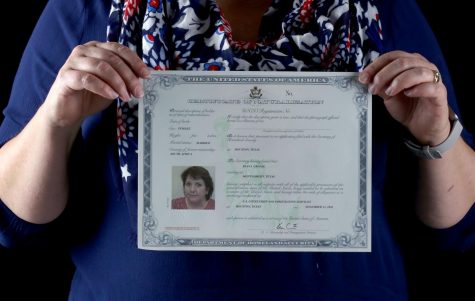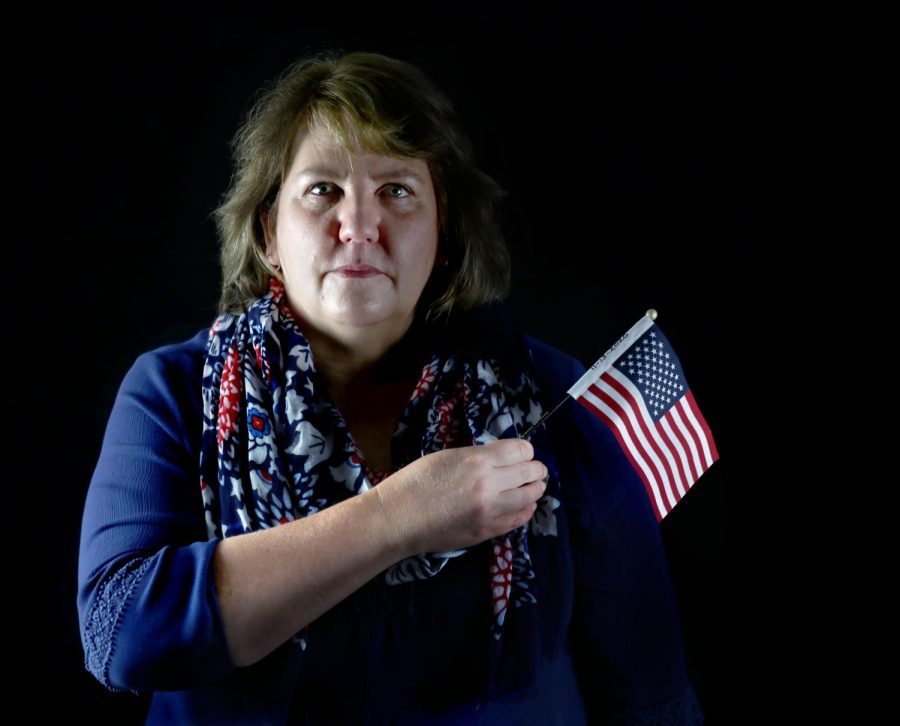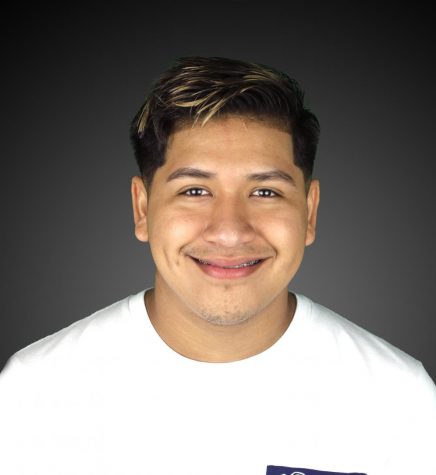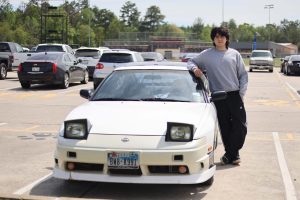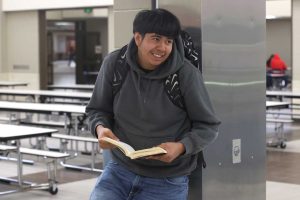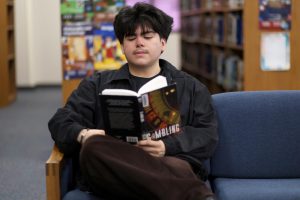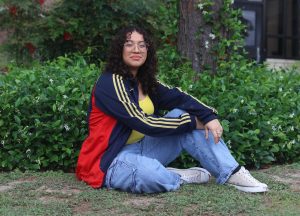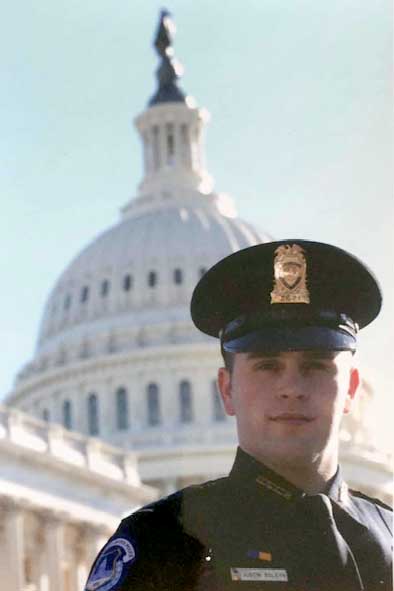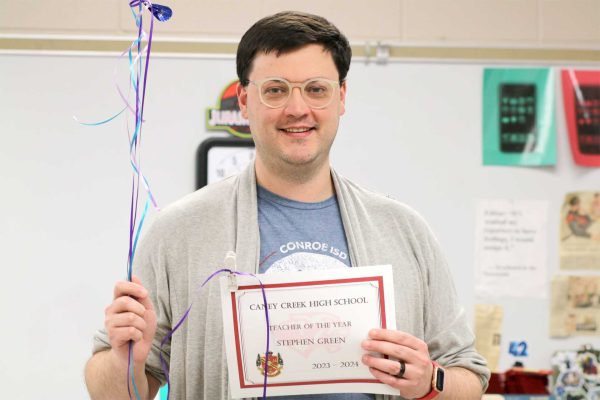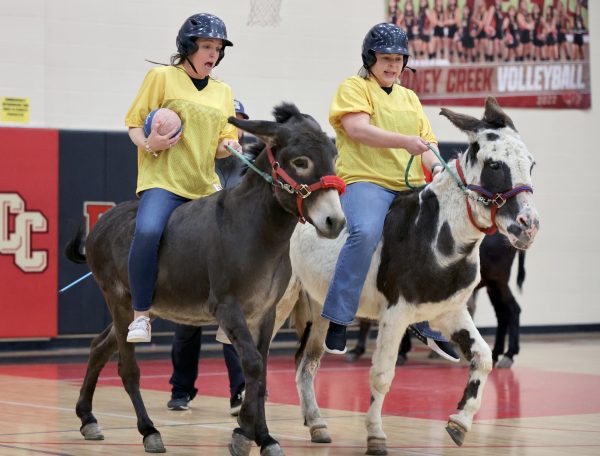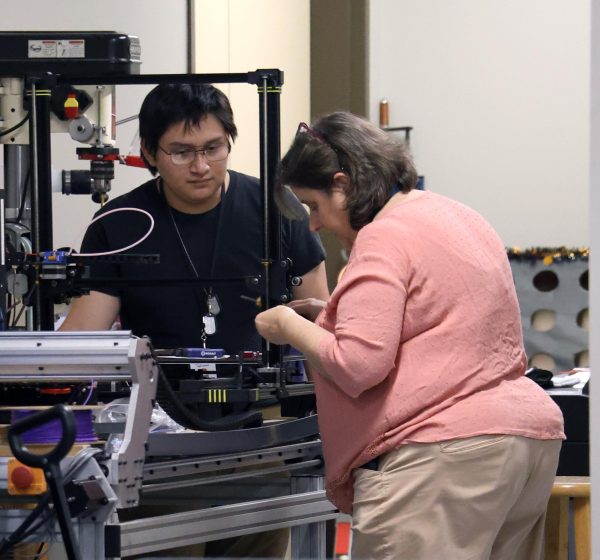Teacher completes long-awaited citizenship journey
Precalculus teacher completes journey to full citizenship
Photo: Omar
Precalculus teacher Riana Cronje stands with the same flag she received as part of her naturalization ceremony on Friday, Nov. 13. Cronje and her family moved from South Africa 15 years ago and have been going through the naturalization process for the better part of a decade.
Jan 20, 2021
If you would ask mathematics teacher Riana Cronje if she would become a citizen 15-years-ago she would say “forget it.” But that’s exactly what happened just before Thanksgiving break.
“(At the time I thought) ‘I don’t want to live there,’” she said. “Americans have the reputation to be rude and arrogant.”
Her thoughts changed when her husband got a job offer in Houston. Their family came to visit for the first time, looking into the schools, churches, and homes before they made the decision to accept the offer.
“We realized that our children had a better future here,” Cronje said. “So many more opportunities, that we kept trying to make it possible for them to stay here.”
Cronje and her family accepted the offer. They came on a work visa in February 2008 and bought a house in Imperial Oaks in Spring.
“There was a time in January 2014 that we were on our last extension of the visa,” Cronje said. “My oldest son was a senior in high school and we were not sure if we would be allowed to stay for him to graduate.”
At the time friends and his ROTC commander wrote letters to the state senator and congressman to appeal their green cards to be approved.
“We thankfully got a visa extension in March 2014 and green cards in February 2015,” Cronje said. “It was a huge relief to know we were not going to be deported.”
For seven years she had been waiting on her resident permanent card and on Nov. 13 she received her citizenship, less than two weeks after the election she’s now qualified to vote in.
“Relieved, 12 years and 10 months,” Cronje said about the process finally being complete. “Our family went out for dinner together. My husband and youngest son are still waiting for theirs. We might have a big celebration then.”
Although, her family, still waiting for their naturalizations were unable to attend the ceremony due to Covid-19 restrictions.
Cronje believes globally, people see the United States as Hollywood and everyone gets judged by that standard. That’s one reason she didn’t want to move to the United States at first.
“I never dreamed of moving to the USA,” Cronje said. “ We were surprised about the hospitality, friendliness and kindness of the Texans when we first came to visit.”
She arrived in the same month when the stock market crashed on Sept. 29, 2008. The economy taking a downturn affected her family more than most.
“America is ridiculously expensive and the currency we brought with us, lost a lot of it’s value,” Cronje said. “We started with a credit score of zero, so we had to pay very high interest rates. Even getting a cellphone contract required a security deposit of $500 each.”
Her next step will be applying for an American passport.
‘I am most excited to get an American passport: you can visit many countries without a visa,” Cronje said. “We can vote.”
She was born in South Africa, located at the bottom of the African continent, and lived there until she moved to Texas.
“It is a very small country about the size of Texas, but culturally very diverse,” Cronje said. “It’s not that wild animals are walking in the streets and we lived in mud houses. So, it didn’t feel much different living there.”
South Africa has 11 official languages. However, crime, she said, was a major problem. According to data from World Bank, crime rates in the early 2000s were the tail end of a downslide from rates in the 1990s when apartheid ended, but rates have been increasing again in recent years.
“The crime was getting out of control,” Cronje said. “You are always in high-alert mode. I didn’t realize it ‘til we moved here and could let my guard down.”
